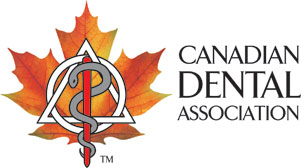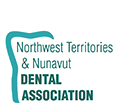Highlights of the 2003 Federal Budget
February 18, 2003 - Ottawa - Today, the Honourable John Manley, deputy prime minister and finance minister, released the 2003 Federal Budget. This budget may be Minister Manley's only federal budget, one overshadowed by an unstable economy, a threat of war, his own personal leadership ambitions and a prime minister who wants to leave a legacy prior to his retirement later this year.
Health care has been a priority in Ottawa recently, and today's budget maintains the focus on health care. Last week, Ottawa promised $34.8 billion in increased federal funding over five years to meet the goals outlined in the 2003 Health Ministers' Accord. Today, Minister Manley announced $9.5 billion in increased cash transfers to the provinces and territories over the next five years.
Also, Minister Manley announced an immediate $2.5 billion transfer to the Canada Health and Social Transfer (CHST) to assist the provinces with the rising costs of health care.
Other 2003 Federal Budget Highlights:
- Annual increase of $800 million for military, plus $150 million in each of next two years.
- $600 million for water treatment projects for First Nations Reserves.
- $2 billion for environmental projects related to the Kyoto Accord (on reducing greenhouse gas emissions).
- The federal government will create two new transfers on April 1, 2004: a Canada Health Transfer (CHT) and a Canada Social Transfer (CST) to increase transparency and accountability.
- $2.5 billion for infrastructure projects, such as roads and sewers.
- The phasing out the annual capital tax over five years.
- A lower tax rate of 12 % applies on the first $200,000 of qualifying income.
- The limit for application of the lower 12 % rate will rise from $200,000 to $300,000 over four years.
- The government will review existing departmental program spending and eliminate $1 billion in needless government spending.
CDA and Federal Budget 2003: RRSPs a reason to celebrate!
Canadian Dental Association president Dr. Tom Breneman presented CDA recommendations to the House of Commons Finance Committee on October 31, 2003 during its Pre-budget Consultations. Andrew Jones, director of corporate and government relations, presented the National Professional Association Coalition on Tuition's recommendations on October 24, 2002. The CDA government relations department also regularly communicates with the Finance Minister's Office, Finance Canada officials, and influential Members of Parliament on fiscal matters.
Retirement Income — Budget 2003:
- RRSP limits are being increased to $14,500 in 2003, $15,500 in 2004 and $16,500 in 2005, before topping out at $18,000 in 2006.
- Registered pension plan contribution limits were raised to $15,500 in 2003, $16,500 in 2004 and $18,000 in 2005.
Following many years of lobbying the Minister of Finance, Department of Finance officials and influential Members of Parliament, CDA is pleased that Minister Manley has followed our recommendations and raised the RRSP limit.
During his presentation to the House of Commons Finance Committee, Dr. Breneman stated: "Our brief makes a number of recommendations calling for an increase in RRSP contribution levels. This is an area that has been overlooked in the past four years, and we feel that this year is the time to make some positive change."
Although CDA would have preferred a larger increase implemented immediately, we are pleased to see government increasing RRSP contribution limits. As Canada's population is aging, it is important that all retirees are able to retire with sufficient financial security to allow them to maintain the lifestyle and quality of life they have enjoyed in their working years. And the increase sends a positive signal to young dentists who may look for better retirement savings in the United States.
Aboriginal Health Care — Budget 2003:
- $600 million over five years to upgrade, maintain and monitor water and wastewater systems on First Nations reserves.
- $1.3 billion over five years for health programs for Canada's native communities.
Fluoridation of water is severely lacking in First Nations communities. CDA will recommend that a proportion of this new spending is directed towards water fluoridation.
The oral health of First Nations has been of concern to CDA for many years. The Non-Insured Health Benefits (NIHB) plan administered by the First Nations and Inuit Health Branch (FNIHB) of Health Canada, offers a tangible example of a dental plan not being a total solution. It was conceived with good intentions but it has become a bureaucratic mess. CDA is pleased to see the federal government's commitment to health programs for Native communities. CDA will continue to recommend how funds can best be spent on the needs of aboriginal Canadians.
Tuition Fees and Student Loans — Budget 2003:
- Budget 2003 increases tax exemptions for students earning income through employment and merit-based scholarships.
- The federal government has improved the Canada Student Loans Program to allow graduates to better manage their debts.
- Budget 2003 student loan measures represent an investment of only $60 million over two years.
- A Canada Social Transfer will be created on April 1, 2004, allowing the federal government to earn more recognition for funding transfers in support of postsecondary education.
In the presentation to the House of Commons Finance Committee, CDA urged government to address recent dramatic increases in professional school tuition fees. Dr. Tom Breneman recommended the federal government increase financial support for students in the form of bursaries and scholarships. CDA is encouraged by Minister Manley's commitment to improve the student loan program, but will continue to call for greater support in this area.
Oral Health Research — Budget 2003:
- Budget 2003 provides for $900 million over five years for health research.
- $500 million will go to research hospitals through the Canada Foundation for Innovation.
- The federal government is creating a new Canada Graduate Scholarships Program to support 2,000 Master's and 2,000 PhD students.
Research is vital to the continual improvement of the oral health of Canada's population. Canada is losing researchers due to readily available research funding in the United States. In its submission to the House of Commons Finance Committee, CDA recommended that more proportionate funding be allocated to oral research. A minimum of 3.5% of Canadian Institutes of Health Research (CIHR) funding should be devoted to oral health, given that oral care comprises 7% of national health expenditures.
CDA will lobby for at least $31.5 million in CIHR funding for oral health research over the next five years.
Immigration — Budget 2003:
- The federal government will invest $13 million over the next two years to work in partnership with professional regulatory bodies, provincial and territorial governments, and employers to facilitate foreign credential assessment and recognition.
- Budget 2003 provides $8 million over the next two years to facilitate the processing of study permits for foreign students.
This federal government believes that Canada needs to attract and recruit more skilled workers and students from abroad to help mitigate skills and labour shortages. The Government of Canada believes many newcomers face barriers preventing them from reaching their full potential in the Canadian labour market, including complex credential assessment and recognition requirements, and limited language skills relative to what is needed to work in their field of expertise. The Canadian government is also concerned about the entry of international students into Canada and the current system of processing study permits for foreign students.
To address these concerns, the federal government has signalled its intention to become more active in the area of foreign credential assessment and recognition and to improve the process for issuing study permits for foreign students.
The Canadian Dental Association plans to educate federal decision-makers on the merits of the current system of licensing and incorporating foreign trained dentists in Canada.
Conclusion:
- New spending initiatives have been allocated and phased in over many years.
- CDA is pleased to see an increase in RRSP contribution limits and a federal government program to improve water systems in Native communities. CDA is disappointed that the government did not do more to support students facing high tuition fees for professional programs, and that oral health research was not directly addressed.
- CDA will continue to present government with these concerns during its 2003 Days on the Hill (April 30 and May 1.)











